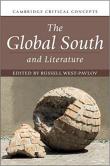AustLit
Latest Issues
AbstractHistoryArchive Description
'The 'Global South' has largely supplanted the 'Third World' in discussions of development studies, postcolonial studies, world literature and comparative literature respectively. The concept registers a new set of relationships between nations of the once colonized world as their connections to nations of the North diminish in significance. Such relationships register particularly clearly in contemporary cultural theory and literary production. The Global South and Literature explores the historical, cultural and literary applications of the term for twenty-first-century flows of transnational cultural influence, tracing their manifestations across the Global Southern traditions of Africa, Asia and Latin America. This collection of interdisciplinary contributions examines the origins, development and applications of this emergent term, employed at the nexus of the critical social sciences and developments in literary humanities and cultural studies. This book will be a key resource for students, graduates and researchers working in the field of postcolonial studies and world literature.'(Publication summary)
Contents
-
Extractive Industries in the Global South : Development, Necropolitics, Globalization and Planetary Ethics,
single work
criticism
(p. 145-160)
In Capital Volume 1. Marx (1976: 925-6) proclaims that -'[[i]f money...'comes into the world with a congenital bloodstain on one cheek.' capital comes (Into tne world] dripping from head to toe. from every pore, with blood and dirt." This dictum comes at the end of a long section on "primitive accumulation." a term Marx coins to describe the primordial foundations of modern industrial capitalism. One of the sites of "enmity° accumulation" that Marx identifies, alongside the European transition from the feudal order and serfdom via seventeenth- and eighteenth century enclosures with the concomitant creation of a proletariat awaiting the industrial revolution, is the seizure of the wealth of the New World in the Americas. India and Africa (Marx 1976: 915). It is interesting to set alongside Marx's glimpses of colonial forms of "primitive accumulation" Joseph Conrad's more pointed equivalent of the same process in Heart of Darkness (2010: 47): "The conquest of the earth, which mostly means the taking it away from those who have a different complexion or slightly flatter noses than ourselves, is not a pretty thing when you look into it too much." In this chapter, I take Marx's "dirt" and Conrad's -"earth" at face value, reading them over-literally as Freudian dream-language might do: dirt not only as moral stiltedness, the earth not only as the globe, but both as that which is dug out of the ground in what is perhaps the most primeval of colonial forms of exploitation since the arrival of the Spanish in the Americas (Galeano 1997). Colonialism in its primordial and least developed form begins with the extraction of precious minerals and the co-optation of natives to do the "dirty" work of mining. "Primitive accumulation." says Marx, begins. In its most primitive phases. with the discovery of gold and silver in America, (and] the extirpation. enslavement and entombment in mines of the indigenous population of that continent" (Marx 1976: 915). In a dual and complementary movement. resources are extracted from the ground by enslaved natives laborers who take the place - Iiterally, spatially - of the minerals they have excavated. In a metaphoric process of exchange. the laborers become dirt, the waste products of mineral extraction. "entombed" in the very heaths left behind by the ore that has been transported to Europe. But the process of "entombing" also involves "encryptment" in the sense of Abraham and Torok (1994). where something is both buried and rendered indecipherable. remaining present however as an Irreducible influence despite its putative consignment to I he past at the moment of its always imminent excavation and extraction, it reasserts its uncanny contemporaneity in the present.' (Introduction)




